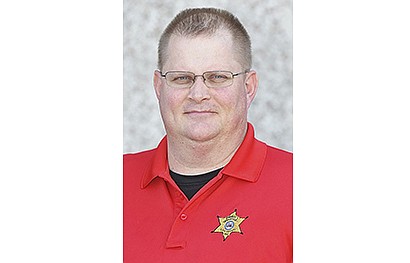A nationwide move toward more widespread marijuana legalization is creeping into Mid-Missouri.
Following the lead of larger communities, local law enforcement is taking a more lenient approach to minor marijuana infractions.
Prosecutors in the state's large urban areas - St. Louis, St. Louis County and Jackson County - have all recently announced they will no longer prosecute low-level marijuana offenses. They've joined urban communities in other states where marijuana remains illegal - in New York, Pennsylvania and Virginia, for example.
The move by Missouri's urban prosecutors signals a continual move toward legalization of recreational marijuana. And although there have been no over-the-waves announcements, some smaller communities are following suit, based on a softening in state law.
Cole County Sheriff John Wheeler said in some cases when detectives or deputies find people with as little as a third of an ounce of marijuana (about 10 grams) his department will issue summonses. He said in those cases, law enforcement is also looking at the record of a person.
"We try to allow deputies the ability to have discretion, but we're not ignoring illegal activity," Wheeler said.
The state started the shift toward leniency in marijuana cases in 2014, when it passed legislation that eliminated the threat of a jail sentence for possession of less than one-third of an ounce of marijuana for the first offense. The change made the light possession of marijuana a ticketable offense with a potential fine of $500. Repeat offenses remain misdemeanors.
In essence, the General Assembly decriminalized possession of small amounts of marijuana that year, said Joy Sweeney, director of the Jefferson City Council for Drug Free Youth.
"Most people surrounding the issue realize that," Sweeney said.
There's been a lot of confusion surrounding the issue of decriminalization of marijuana, she said. The 2014 issue was frustrating because people felt like communities were throwing people in jail for "smoking a joint," she said.
"They weren't doing that," Sweeney said. "We were trying to get help for users. The suppliers - we were trying to get them off the streets, so kids could grow up healthy."
A lot of people see last year's passage of an amendment legalizing use of medical marijuana as yet another step toward full marijuana legalization, she said.
The initiative passed in November by a 2-1 margin. The Missouri Department of Health and Senior Services is in the process of implementing the law and recently began accepting applications for medical marijuana facilities.
On July 4, the state will begin accepting applications from patients with qualifying conditions to receive medical marijuana permits.
The General Assembly considered a number of marijuana bills last year.
And, members of the chambers have already filed several bills for 2019. The Senate will look at a few that deal with medical marijuana regulation.
The Missouri House of Representatives, so far, has three to consider that will deal with legalization of recreational marijuana.
House Bill 157, sponsored by Minority Whip Brandon Ellington, D-Kansas City, fully legalizes the possession of less than 2 ounces of marijuana. It also allows growth of fewer than six cannabis plants by anyone who is 21 or older.
Peter Merideth, D-St. Louis, has filed a bill that would legalize possession of marijuana purchased from a licensed retailer. HB 551, which is similar to legislation he's filed in previous years, would allow growing, manufacturing, selling, displaying, transferring, delivering, packaging, processing, cultivating or harvesting marijuana only in communities that have voted to allow the activities.
HB 292, sponsored by Barbara Washington, D-Kansas City, would expunge convictions of possession of less than one-and-a-quarter ounce of marijuana for any person convicted from Dec. 31, 1997, to Aug. 28 of this year.
That wouldn't necessarily lead to widespread release of offenders from prison, Sweeney said.
"Most people in jail for a marijuana crime, have another crime associated with it as well," she said.
The goal for any marijuana laws would be twofold, she said.
"What we want to do is get people help who are addicted into treatment," she said. "And get people who are supplying it off the street."

